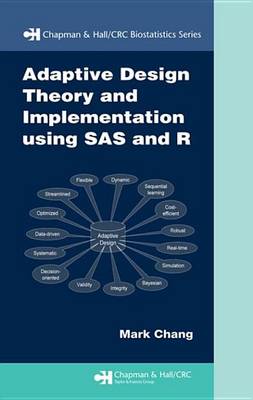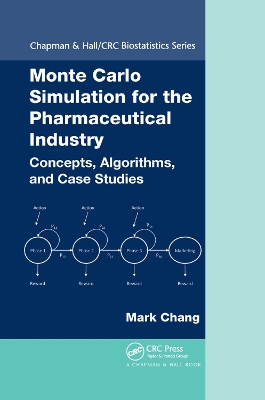Chapman & Hall/CRC Biostatistics
3 total works
Artificial Intelligence for Drug Development, Precision Medicine, and Healthcare
by Mark Chang
Artificial Intelligence for Drug Development, Precision Medicine, and Healthcare covers exciting developments at the intersection of computer science and statistics. While much of machine-learning is statistics-based, achievements in deep learning for image and language processing rely on computer science's use of big data. Aimed at those with a statistical background who want to use their strengths in pursuing AI research, the book:
* Covers broad AI topics in drug development, precision medicine, and healthcare.
* Elaborates on supervised, unsupervised, reinforcement, and evolutionary learning methods.
* Introduces the similarity principle and related AI methods for both big and small data problems.
* Offers a balance of statistical and algorithm-based approaches to AI.
* Provides examples and real-world applications with hands-on R code.
* Suggests the path forward for AI in medicine and artificial general intelligence.
As well as covering the history of AI and the innovative ideas, methodologies and software implementation of the field, the book offers a comprehensive review of AI applications in medical sciences. In addition, readers will benefit from hands on exercises, with included R code.
Helping you become a creative, logical thinker and skillful "simulator," Monte Carlo Simulation for the Pharmaceutical Industry: Concepts, Algorithms, and Case Studies provides broad coverage of the entire drug development process, from drug discovery to preclinical and clinical trial aspects to commercialization. It presents the theories and methods needed to carry out computer simulations efficiently, covers both descriptive and pseudocode algorithms that provide the basis for implementation of the simulation methods, and illustrates real-world problems through case studies.
The text first emphasizes the importance of analogy and simulation using examples from a variety of areas, before introducing general sampling methods and the different stages of drug development. It then focuses on simulation approaches based on game theory and the Markov decision process, simulations in classical and adaptive trials, and various challenges in clinical trial management and execution. The author goes on to cover prescription drug marketing strategies and brand planning, molecular design and simulation, computational systems biology and biological pathway simulation with Petri nets, and physiologically based pharmacokinetic modeling and pharmacodynamic models. The final chapter explores Monte Carlo computing techniques for statistical inference.
This book offers a systematic treatment of computer simulation in drug development. It not only deals with the principles and methods of Monte Carlo simulation, but also the applications in drug development, such as statistical trial monitoring, prescription drug marketing, and molecular docking.


